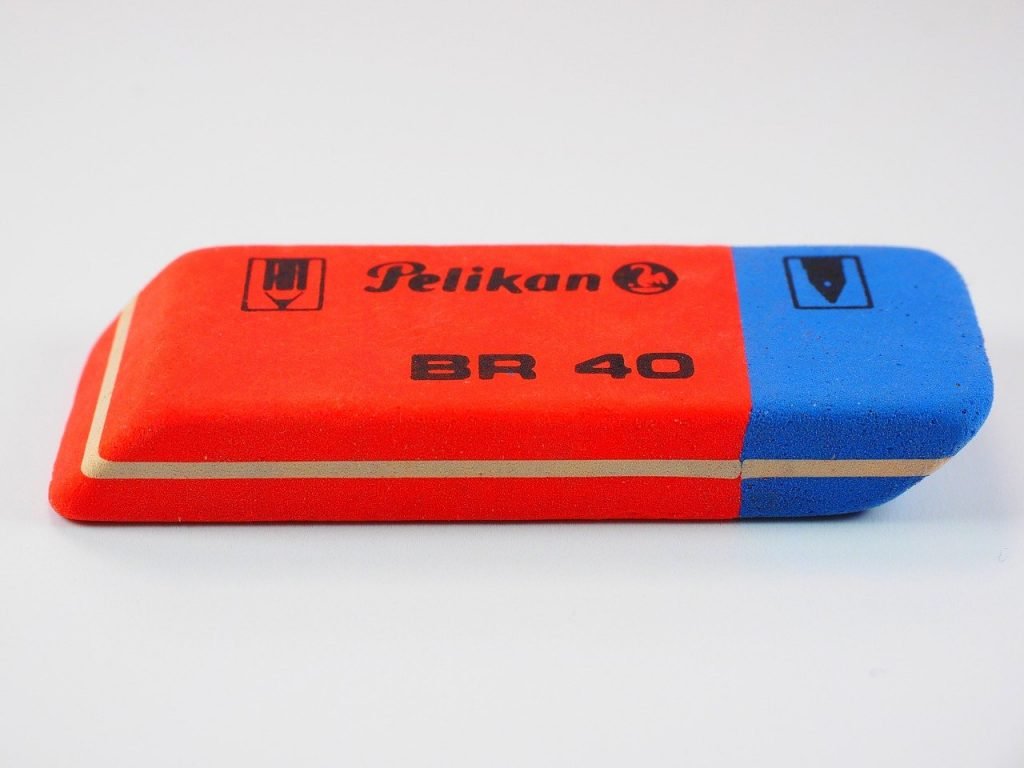SEO: Typical Mistakes and How to Avoid Them

The path to a successful SEO is a rocky one already. Don't stand in your own way on top of that!
Basically, the search engine is your friend. It wants to do the same thing you do. It wants to make relevant content visible, just as you want to make your relevant content visible. With this level of identity of interest, there has to be something we can do...
The problem can be outlined quite easily. First, the search engine may have a different understanding of relevance than you do. Here, you can't do anything but rethink, as the search engine has the upper hand. Second, the search engine has to be able to identify the relevant content. Here, you can help a lot.
Let's take a look at the typical mistakes that could be in the way of your SEO (search engine optimization).
 Even this, rather quaint, desert loses its appeal pretty quickly. (Photo: Pixabay)[/caption]
The bounce rate is another important ranking indicator. When a visitor gets to your site, just to find himself in front of a text desert, he's likely to leave right away, driving up your bounce rate, which affects your ranking in a negative way. Logical: if your content takes five minutes to read through, but is left after 20 seconds, Google thinks it can't be as good and relevant after all.
To avoid this effect, you should pay attention to provide a relaxed, reader-friendly environment.
Even this, rather quaint, desert loses its appeal pretty quickly. (Photo: Pixabay)[/caption]
The bounce rate is another important ranking indicator. When a visitor gets to your site, just to find himself in front of a text desert, he's likely to leave right away, driving up your bounce rate, which affects your ranking in a negative way. Logical: if your content takes five minutes to read through, but is left after 20 seconds, Google thinks it can't be as good and relevant after all.
To avoid this effect, you should pay attention to provide a relaxed, reader-friendly environment.
 Use Your Virtual Rubber. (Photo: Pixabay)[/caption]
However, if your contents are full of formal errors, chances of link placement on these contents drop drastically. For this type of content, a good social media presence is not to be expected either.
Yet, these mistakes can be avoided quite easily. Run your text through a good spellchecker, and, if the content is critical, decisive for conversion or non-conversion, hand it over to a proofreader. This service is quite affordable these days and often pans out very quickly.
It's even worse if your content is full of substantial errors that you didn't include on purpose such as "fake news." If you have to do research on content, never get all the information from a single source. Personally, I always try to find three sources, all of which confirm the facts. Here, I also make sure that the sources don't use each other as sources and also check how trustworthy the respective source seems.
Use Your Virtual Rubber. (Photo: Pixabay)[/caption]
However, if your contents are full of formal errors, chances of link placement on these contents drop drastically. For this type of content, a good social media presence is not to be expected either.
Yet, these mistakes can be avoided quite easily. Run your text through a good spellchecker, and, if the content is critical, decisive for conversion or non-conversion, hand it over to a proofreader. This service is quite affordable these days and often pans out very quickly.
It's even worse if your content is full of substantial errors that you didn't include on purpose such as "fake news." If you have to do research on content, never get all the information from a single source. Personally, I always try to find three sources, all of which confirm the facts. Here, I also make sure that the sources don't use each other as sources and also check how trustworthy the respective source seems.
 In contrast to a traditional road trip, for SEO, the journey is not the destination. (Photo: Pixabay)[/caption]
You need to verbalize this goal. The so-called call to action mustn't be missing. You may think it was obsolete, and that a thinking human would realize that he should become a customer on his own. Let me tell you: he doesn't.
Clear CTA is indispensable, which is why this tip belongs into the list and should be rooted in the meta information of the respective content. You get to write the meta information, meaning the parts of the text that are displayed in the search results, yourself, and you should always do so. If you don't, Google uses the beginning of your text as a teaser in the search results. However, except for a sheer coincidence, the beginning of the text is not the right text passage to get potential visitors to click on your content.
In contrast to a traditional road trip, for SEO, the journey is not the destination. (Photo: Pixabay)[/caption]
You need to verbalize this goal. The so-called call to action mustn't be missing. You may think it was obsolete, and that a thinking human would realize that he should become a customer on his own. Let me tell you: he doesn't.
Clear CTA is indispensable, which is why this tip belongs into the list and should be rooted in the meta information of the respective content. You get to write the meta information, meaning the parts of the text that are displayed in the search results, yourself, and you should always do so. If you don't, Google uses the beginning of your text as a teaser in the search results. However, except for a sheer coincidence, the beginning of the text is not the right text passage to get potential visitors to click on your content.
Your Content is Too Short.
Before the #uproar saying that a certain length was not defined, and so on, let's just look at the concept that Google communicates for the ranking. According to that, you should deliver content that answers the respective question given by the search term as detailed as possible. In the best case, your content is so exhaustive that no further searches are required. If you try to meet this requirement, it almost automatically results in a long text. As you can see from this older survey from the house of SerpIQ, the average of the first ten results is above 2,000 words, with the top 3 sitting at over 2.400. The same survey states that the average content length increases with the website's age. However, even with domains that are less than a year old, the ones with at least 1.500 words per content have the highest rankings. A lot of people like to object that "no human's going to read" content of this length. This might be true. But humans aren't the ones putting you on page 1 of the search results, the algorithm does. And it definitely reads content of this length.Your Content is Like a Text Desert.
So you wrote a long text. That's pretty good. This could get you to the upper ranks of the results. Unfortunately, in the end, the algorithm is not the only reader after all. Or, let's put it this way, the algorithm does not only look at the length of the content. [caption id="attachment_102269" align="alignnone" width="1024"] Even this, rather quaint, desert loses its appeal pretty quickly. (Photo: Pixabay)[/caption]
The bounce rate is another important ranking indicator. When a visitor gets to your site, just to find himself in front of a text desert, he's likely to leave right away, driving up your bounce rate, which affects your ranking in a negative way. Logical: if your content takes five minutes to read through, but is left after 20 seconds, Google thinks it can't be as good and relevant after all.
To avoid this effect, you should pay attention to provide a relaxed, reader-friendly environment.
Even this, rather quaint, desert loses its appeal pretty quickly. (Photo: Pixabay)[/caption]
The bounce rate is another important ranking indicator. When a visitor gets to your site, just to find himself in front of a text desert, he's likely to leave right away, driving up your bounce rate, which affects your ranking in a negative way. Logical: if your content takes five minutes to read through, but is left after 20 seconds, Google thinks it can't be as good and relevant after all.
To avoid this effect, you should pay attention to provide a relaxed, reader-friendly environment.
- Don't use any excessively long paragraphs, but structure your content into smaller pieces. This makes it easier for visitors to scan the text, because - it's true - nobody reads through texts of that length. Aside from short paragraphs, also make use of structuring text elements, like lists, captions, quotes, insertions, and so on.
- Also, loosen up your text using images and illustrations wherever it's possible. This allows you to recapture the stray attention of the reader throughout the text.
Your Content is Full of Errors.
Some believe that writing on the web allowed for a certain formal laxity. This is a fallacy. While the Google bot won't be able to tell when you make spelling or grammatical mistakes, your readers will. There may be a tolerance towards smaller mistakes, but it's a very low one. [caption id="attachment_102265" align="alignnone" width="1024"] Use Your Virtual Rubber. (Photo: Pixabay)[/caption]
However, if your contents are full of formal errors, chances of link placement on these contents drop drastically. For this type of content, a good social media presence is not to be expected either.
Yet, these mistakes can be avoided quite easily. Run your text through a good spellchecker, and, if the content is critical, decisive for conversion or non-conversion, hand it over to a proofreader. This service is quite affordable these days and often pans out very quickly.
It's even worse if your content is full of substantial errors that you didn't include on purpose such as "fake news." If you have to do research on content, never get all the information from a single source. Personally, I always try to find three sources, all of which confirm the facts. Here, I also make sure that the sources don't use each other as sources and also check how trustworthy the respective source seems.
Use Your Virtual Rubber. (Photo: Pixabay)[/caption]
However, if your contents are full of formal errors, chances of link placement on these contents drop drastically. For this type of content, a good social media presence is not to be expected either.
Yet, these mistakes can be avoided quite easily. Run your text through a good spellchecker, and, if the content is critical, decisive for conversion or non-conversion, hand it over to a proofreader. This service is quite affordable these days and often pans out very quickly.
It's even worse if your content is full of substantial errors that you didn't include on purpose such as "fake news." If you have to do research on content, never get all the information from a single source. Personally, I always try to find three sources, all of which confirm the facts. Here, I also make sure that the sources don't use each other as sources and also check how trustworthy the respective source seems.
Your Contents Have No Goal.
When writing content for your business, you'll pursue a particular goal. That goal won't be to get into the top 10 of search results. That's just another means to an end. Your actual goal is probably gaining customers. You want visitors to buy your thermal socks, your ebook, your consulting services, your WordPress theme, your software. [caption id="attachment_102266" align="alignnone" width="1024"] In contrast to a traditional road trip, for SEO, the journey is not the destination. (Photo: Pixabay)[/caption]
You need to verbalize this goal. The so-called call to action mustn't be missing. You may think it was obsolete, and that a thinking human would realize that he should become a customer on his own. Let me tell you: he doesn't.
Clear CTA is indispensable, which is why this tip belongs into the list and should be rooted in the meta information of the respective content. You get to write the meta information, meaning the parts of the text that are displayed in the search results, yourself, and you should always do so. If you don't, Google uses the beginning of your text as a teaser in the search results. However, except for a sheer coincidence, the beginning of the text is not the right text passage to get potential visitors to click on your content.
In contrast to a traditional road trip, for SEO, the journey is not the destination. (Photo: Pixabay)[/caption]
You need to verbalize this goal. The so-called call to action mustn't be missing. You may think it was obsolete, and that a thinking human would realize that he should become a customer on his own. Let me tell you: he doesn't.
Clear CTA is indispensable, which is why this tip belongs into the list and should be rooted in the meta information of the respective content. You get to write the meta information, meaning the parts of the text that are displayed in the search results, yourself, and you should always do so. If you don't, Google uses the beginning of your text as a teaser in the search results. However, except for a sheer coincidence, the beginning of the text is not the right text passage to get potential visitors to click on your content.

Exactly, I don’t know why people make these typical mistake even if they are not SEO they need to have common sense.
Totally agree with your point “Your Content is Like a Text Desert”. Most people fill their webpages with content ignoring the UX, only to realize it later that it results in high bounce rate.